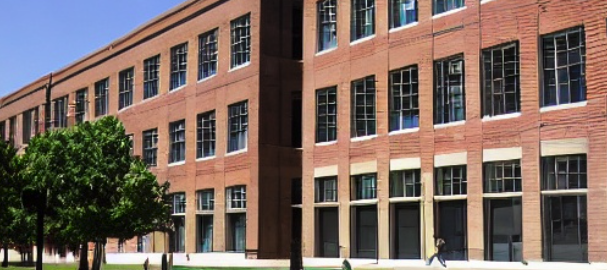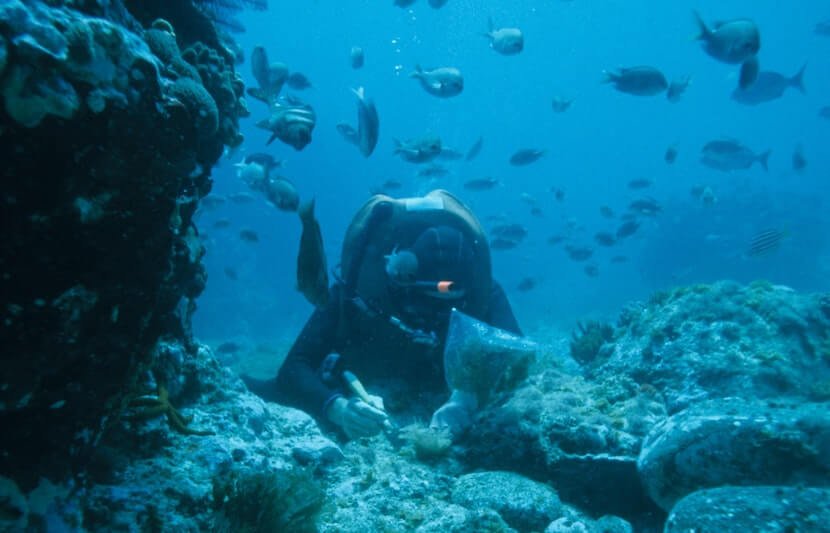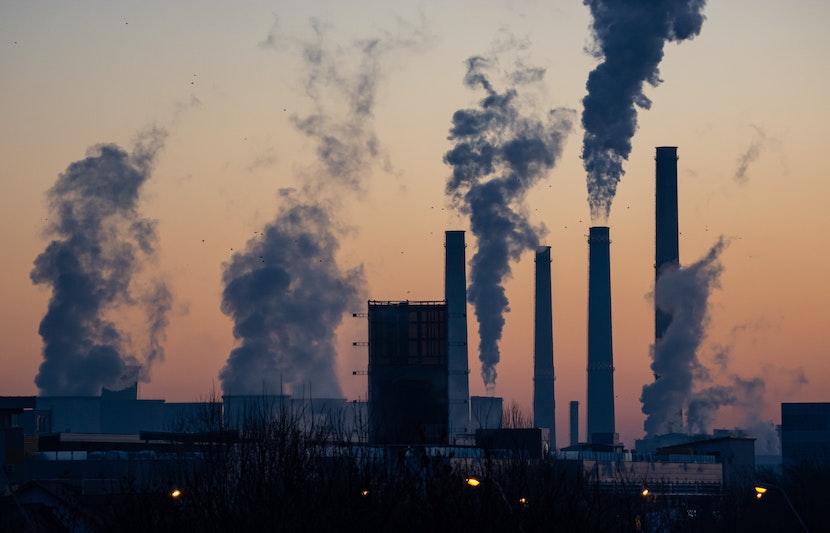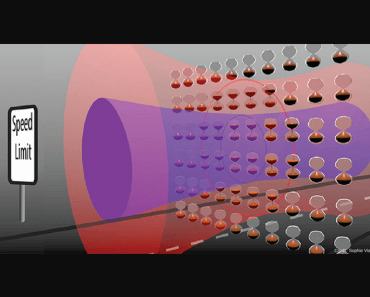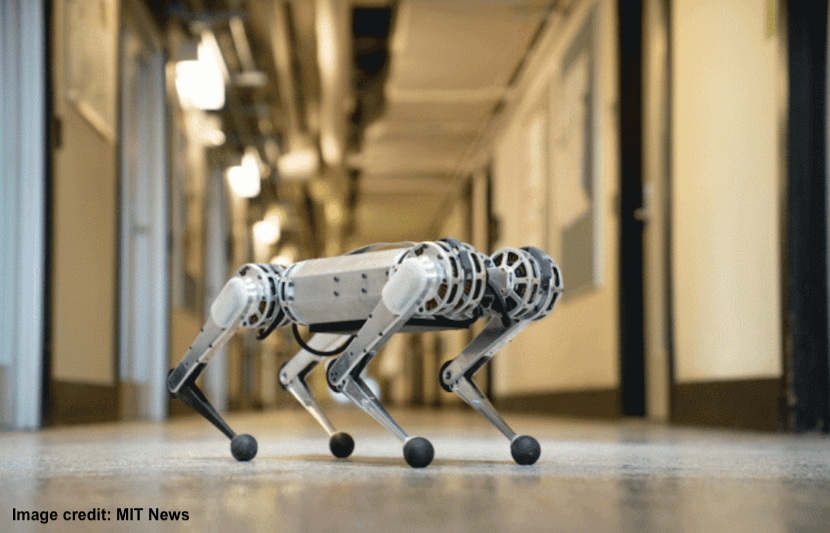-
Tiny, Deep-Ocean Organisms Could Have Huge Effect on Earth’s Carbon Cycle
In the darkness of the ocean’s twilight zone, 100 to 1,000 meters below the water’s surface, the ravenous appetite of tiny, single-celled organisms could play an unexpected role in altering Earth’s carbon cycle, according to a new study. Led by Mike Stukel, an assistant professor of oceanography at Florida State University, a team of researchers… Read More
-
Smartphone Game Motivates People to Exercise
Researchers at the University of Iowa have developed a way to lead sedentary Americans toward a healthier lifestyle by turning everyday exercise into a friendly competition. By designing an interactive web-based app that’s playable with a smartphone and Fitbit, the researchers found that people increased their walking steps by a significant amount when motivated by… Read More
-
High Intake of Fruits and Vegetables May Lower Breast Cancer Risk
Eating high amounts of fruits and vegetables each day may lower the risk of breast cancer and aggressive tumors in women, according to a new study. Researchers at Harvard T.H. Chan School of Public Health found that yellow and orange vegetables and cruciferous vegetables such as broccoli, in particular, are significantly associated with lower breast… Read More
-
The National Push to Integrate Women Into STEM Fields
Women now make up 45.8 percent of the professional U.S. workforce. Unfortunately, while many strides have been taken to integrate women into a broad range of professional occupations, the fields of science, technology, engineering and math (STEM) still hold significant gender gaps. But diversity fosters development in every work environment. “Diversity is at the core… Read More
-
University of Melbourne’s Nitrogen Footprint Inspires Guide to Pollution Reduction
An international team of researchers has become the first to use a tool to calculate the nitrogen footprint of an Australian university, the University of Melbourne (UoM). They will use their data to help provide a guide for other universities and institutions to reduce their nitrogen footprints. Nitrogen pollution stands as one of the primary… Read More
-
Understanding and Overcoming ‘Speed Limits’ In Light-Based Technologies
In a recent study, physicists at Chalmers University of Technology in Sweden have identified why light-based technologies are subject to “speed limits” that make it impossible for optical switches to transmit information beyond a certain speed. In the drive to make technologies ever more efficient, engineers have been exploring ways to use light, rather than… Read More
-
American Employers Prefer ‘Excited’ Candidates in Job Interviews
Should you be calm and collected, or animated and excited, when you show up for a job interview? This is important because how you appear to your interviewer may influence the hiring decision, according to a new study. The study suggests that only Westerners correlate excitement with a successful candidate. For the study, Jeanne Tsai,… Read More
-
Why a Solo Can Make You Cry
Music has the immense power to transform and manipulate emotion. A happy song can momentarily lift people out of feeling lonely or depressed, and a sad song can make even the happiest of people experience a moment of sorrow or isolation. A recent study has shed light on the emotional powers of a solo. Researchers… Read More
-
First Fern Genome Sequenced, Solving Old Mysteries and Opening New Doors
At first glance, the ancient water fern Azolla filiculoides is unassuming. It is miniscule by any measure, with gnat-sized leaves that can sit comfortably on the tip of your smallest finger. But there is more to this miniature plant than meets the eye. Some researchers believe its nitrogen fixation abilities and insect resistant properties could… Read More
-
Carbon to Replace Metal in Manufacturing
In the near future, carbon is expected to replace metals in many applications of manufacturing goods. It could even be used to develop smart clothing capable of charging a cell phone. To prepare for a carbon renaissance, engineers at the Nanoworld Laboratories at the University of Cincinnati (UC) have partnered with Wright-Patterson Air Force Base… Read More
-
Researchers Create Synthetic White Cells to Fight Disease
UCLA researchers have developed artificial T lymphocytes, or T cells that are so close to human T cells that it could one day be used to treat cancer and other autoimmune diseases. T cells are a type of white blood cell that plays a key role in fighting off specific germs. They first mature in… Read More
-
Robotic Cheetah to Act as Emergency Responder
The robotic cheetah is one of the most popular inventions MIT has developed in the 21st century. Its design, speed, size, strength and jumping ability has made it a fan favorite and given it real-world applications. Now, a third generation robot, named the Cheetah 3, can travel swiftly across rough terrain, climb up stairs covered… Read More
-
Method Revolutionizes Tracking the Spread of Cancer
A team of researchers has developed a new method to track the spread of cancer cells, yielding a clearer understanding of cancer migration than ever before. The spread of tumor cells to different locations in the body, known as metastasis, is the most dangerous element of cancer. Metastatic disease causes close to 90 percent of… Read More
-
Expecting Stress May Lower Daily Brain Function
While everyone knows stress is bad, researchers have now found that simply expecting to be stressful can lower cognitive abilities throughout the day. Their paper is published in the Journals of Gerontology: Psychological Sciences. Stress and working memory Many studies have already shown how stressful events can affect not only our emotion and physiology, but… Read More
-
Why Driving Makes Us So Sleepy
Researchers from RMIT University in Melbourne, Australia have an explanation as to why drivers become so sleepy. They have recently found that driver fatigue is often enhanced by the natural vibrations caused by the car’s engines. These vibrations can cause people to experience symptoms of drowsiness, affecting concentration and alertness, within 15 minutes of hitting… Read More

